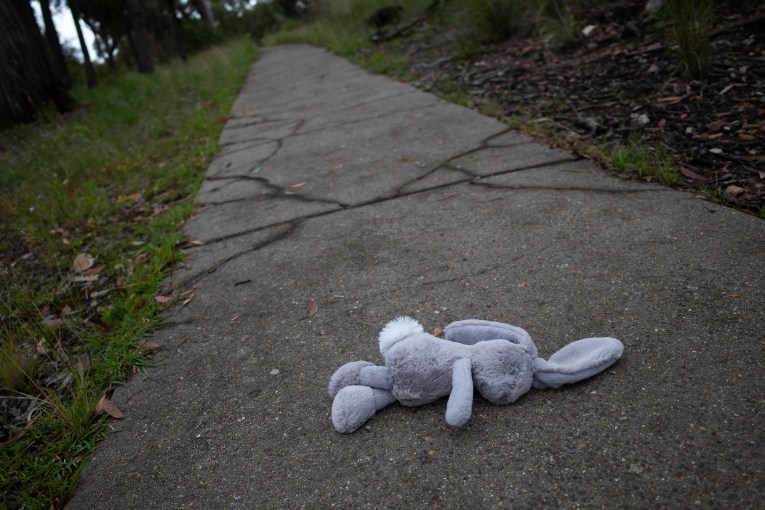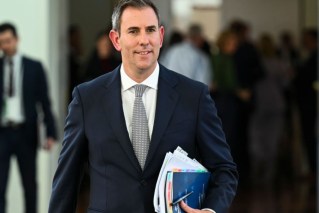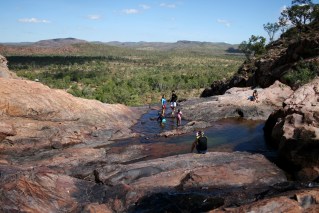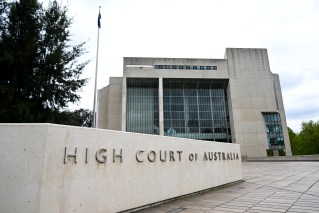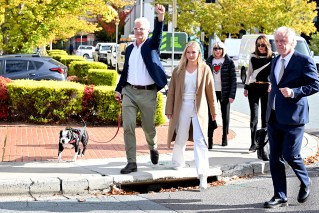No clear air for PM’s moment in the sun
It was Tony Abbott’s ‘almost’ moment.
In his diary, Thursday afternoon was set aside for fulfilling his triple-barrelled election pledge. The boats have been stopped. His budget was working in Labor’s debt crisis. And now, he had axed the carbon tax.
But after five years of promises and 10 months in power, after securing an agreement with Clive Palmer and telling the press in the morning that he would deliver – finally – on all the sloganeering … after it all, nothing.
• What exactly happened in the parliament yesterday – explained
• How the new senate could be Tony Abbott’s worst enemy
• Smoke and mirrors: What’s Clive really up to?
After a comedy of errors and a constitutional hitch, the PM learned an important lesson about the new senate – assume nothing.
The first indication was the new crossbench’s dismissal of a government move on Monday – soon after their swearing in – to bring the carbon tax repeal bills ahead “without formalities”.
Not such an Enthusiast
A second twist in the saga came when Ricky Muir voted with Labor, the Greens and two other crossbenchers, but not PUP, to block the government’s attempt to gag and guillotine the debate on the carbon tax repeal.
Coalition tacticians assumed Muir, who has an agreement with PUP, would vote with his cohorts. But he had other ideas.
He may have been influenced by independent Nick Xenophon, who pleaded: “Let’s sit as many hours as we need to so that no senator, no party, no individual is deprived of the right to ask key questions about these bills.”
The government moved another fast-track motion to ensure the repeal bills were put to a vote before noon.

Clive Palmer speaks to the media after the carbon tax vote. Photo: AAP
But this time Clive Palmer threw a spanner in the works.
With little warning he tabled a change to an amendment on which he already had government agreement.
But a tangled web of communication breakdowns, advice from Senate officials and general incompetence led to the latest version of the Palmer amendment being dropped and the PUP senators siding with Labor to vote down the repeal bills.
Palmer claimed he had received a “violent” reaction to his latest amendments when he showed it to senior government figures.
But he later received an assurance the government would support the changes when the repeal bills go before the lower house on Monday.
Senate stars
The new crossbenchers appear to have a growing fan club in the electorate.
The latest Essential poll puts PUP’s national support at six per cent and “other” at seven per cent.
Added to the nine per cent backing for the Australian Greens, it means more than one in five voters don’t support a major party.

Palmer United Senators Zhenya Wang and Glenn Lazarus. Photo: AAP
Many voters believe the senators are filling a niche in the political market left by the Liberal-National coalition and Labor failing to provide suitable candidates and responsive leadership.
As Leyonhjelm said, turning Paul Keating’s insult on its head: “We are the most representative swill ever assembled.”
There is another downside for the government which can be summed up in one word: deficit.
Treasurer Joe Hockey’s prospects of getting Senate approval to balance the books within four years look decidedly wobbly.
Palmer has outlined more than $9 billion in government cuts which he says should not go ahead.
The mining magnate told the National Press Club this week he did not care if the debt blew out if it meant pensioners would not be short-changed.
PUP senator Jacqui Lambie, who met with Abbott in Canberra to discuss her concerns and mend some fences after calling him a “political psychopath”, has a $5 billion wishlist for her state of Tasmania.
Labor opposes cuts of at least $15 billion, and perhaps as much as $40 billion, in spending.
Greens leader Christine Milne summed up the week describing Abbott as a “crash-through or crash prime minister”.
“And he has crashed,” she said.
The crash-through can’t be assumed.
-with staff reporters
